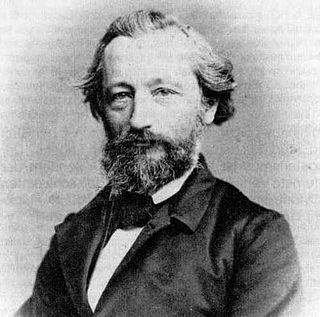 W
WEduard Baltzer was the founder of the first German vegetarian society, the German Natural Living Society.
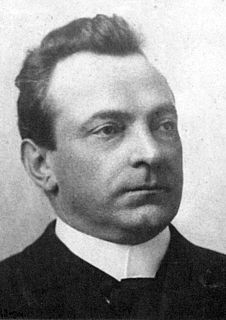 W
WJakub Bart-Ćišinski, also known as Łužičan, Jakub Bart Kukowski, was Sorbian poet, writer and playwright, translator of Czech, Polish, Italian and German literature. He produced his works in Upper Sorbian. He is also an inventor of modern Upper Sorbian poetic language. He has been described as "the classical writer of Sorbian literature."
 W
WAdolf Böttger was a German translator and poet. As a translator, he created German versions of works in the English language, a major project being the translation of the complete works of Byron.
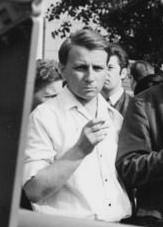 W
WWerner Bräunig was a German author. He is best known for his posthumously published novel Rummelplatz.
 W
WJurij Brězan was a Sorbian writer. His works, especially the novels, narrative works and children's books, were available in the two languages German and Upper Sorbian.
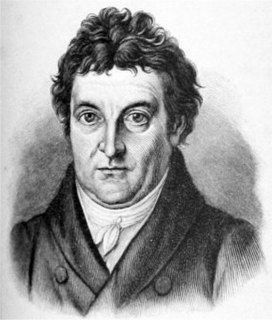 W
WJohann Gottlieb Fichte was a German philosopher who became a founding figure of the philosophical movement known as German idealism, which developed from the theoretical and ethical writings of Immanuel Kant. Recently, philosophers and scholars have begun to appreciate Fichte as an important philosopher in his own right due to his original insights into the nature of self-consciousness or self-awareness. Fichte was also the originator of thesis–antithesis–synthesis, an idea that is often erroneously attributed to Hegel. Like Descartes and Kant before him, Fichte was motivated by the problem of subjectivity and consciousness. Fichte also wrote works of political philosophy; he has a reputation as one of the fathers of German nationalism.
 W
WAdolph Konrad Fiedler or Conrad Fiedler was a German art historian, art collector and writer. Fiedler was one of the most important German art theorist of the 19th century
 W
WJürgen Fuchs was an East German writer and dissident.
 W
WChristian Fürchtegott Gellert was a German poet, one of the forerunners of the golden age of German literature that was ushered in by Lessing.
 W
WPeter Gosse is a German poet, prose author and essayist.
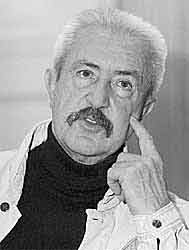 W
WEgon Günther was a German film director and writer.
 W
WPeter Härtling was a German writer, poet, publisher and journalist. He received the Order of Merit of the Federal Republic of Germany for his major contribution to German literature.
 W
WStephan Hermlin, real name Rudolf Leder, was a German author. He wrote, among other things, stories, essays, translations, and lyric poetry and was one of the more well-known authors of former East Germany.
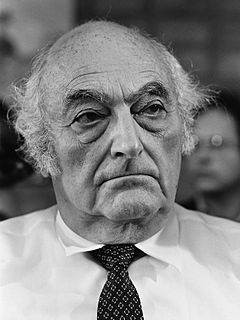 W
WHelmut Flieg or Hellmuth Fliegel was a German writer, known by his pseudonym Stefan Heym. He lived in the United States between 1935 and 1952, before moving back to the part of his native Germany which was, from 1949 to 1990, the German Democratic Republic. He published works in English and German at home and abroad, and despite longstanding criticism of the GDR remained a committed socialist.
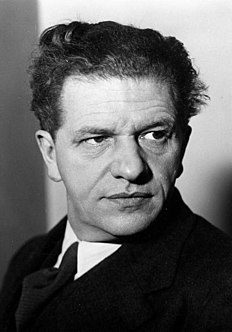 W
WHanns Johst was a German poet and playwright, directly aligned with National Socialist philosophy, as a member of the officially approved writers’ organisations in the Third Reich. The statement “When I hear the word culture, I reach for my gun”, variously misattributed to Heinrich Himmler, Joseph Goebbels and Hermann Göring, was in fact a corrupted version of a line in his play Schlageter.
 W
WJurij Koch is a Sorbian writer. He writes in both Sorbian languages as well as German.
 W
WReiner Kunze is a German writer and GDR dissident. He studied media and journalism at the University of Leipzig. In 1968, he left the GDR state party SED following the communist Warsaw Pact countries invasion of Czechoslovakia in response to the Prague Spring. He had to publish his work under various pseudonyms. In 1976, his most famous book The Lovely Years, which contained critical insights into the life, and the policies behind the Iron Curtain, was published in West Germany to great acclaim. In 1977, the GDR regime expatriated him, and he moved to West Germany (FRG). He now lives near Passau in Bavaria.
 W
WErich Loest was a German writer born in Mittweida, Saxony. He also wrote under the pseudonyms Hans Walldorf, Bernd Diksen and Waldemar Naß.
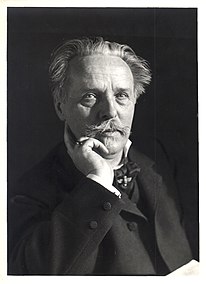 W
WKarl Friedrich May was a German author. He is best known for his travel novels set on one hand in the American Old West with Winnetou and Old Shatterhand as main protagonists and on the other hand in the Orient and Middle East with Kara Ben Nemsi and Hadschi Halef Omar. May also wrote novels set in Latin America and Germany, poetry, a play, and composed music; he was a proficient player of several musical instruments. Many of his works were adapted for film, stage, audio dramas and comics. Later in his career, May turned to philosophical and spiritual genres. He is one of the best-selling German writers of all time, with about 200,000,000 copies worldwide.
 W
WIrmtraud Morgner,, was a German writer, best known for works of magical realism concerned predominantly with the role of gender in East German society.
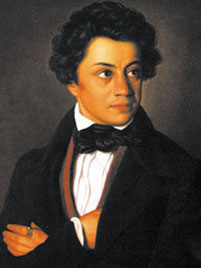 W
WJulius Mosen was a German poet and author of Jewish descent, associated with the Young Germany movement, and now remembered principally for his patriotic poem the Andreas-Hofer-Lied.
 W
WArnošt Muka was a German and Sorbian writer, linguist and man of science.
 W
WHeiner Müller was a German dramatist, poet, writer, essayist and theatre director. His "enigmatic, fragmentary pieces" are a significant contribution to postmodern drama and postdramatic theatre.
 W
WDieter Noll was a German writer. His best known work is the two volume novel Die Abenteuer des Werner Holt from the early 1960s which had sold over two million copies by his death.
 W
WJoachim Ringelnatz is the pen name of the German author and painter Hans Bötticher (7 August 1883, Wurzen, Saxony – 17 November 1934, Berlin). His pen name Ringelnatz is usually explained as a dialect expression for an animal, possibly a variant of Ringelnatter, German for Grass Snake or more probably the seahorse for winding ("ringeln") its tail around objects. Seahorse is called Ringelnass by mariners to whom he felt belonging. He was a sailor in his youth and spent the First World War in the Navy on a minesweeper. In the 1920s and 1930s, he worked as a Kabarettist, i.e., a kind of satirical stand-up comedian. He is best known for his wry poems, often using word play and sometimes bordering on nonsense poetry. Some of these are similar to Christian Morgenstern's, but often more satirical in tone and occasionally subversive. His most popular creation is the anarchic sailor Kuddel Daddeldu with his drunken antics and disdain for authority.
 W
WFrank Schneider is a German musicologist.
 W
WJan Skala was a Sorbian journalist, poet and leading ideologist of the Sorbian national movement. In the interwar period (1918–1945) he was active in the Association of National Minorities in Germany for the rights of non-German ethnic groups in the Germany.
 W
WJan Arnošt Smoler was a Sorbian philologist and writer. He played a vital role in revitalizing the Sorbian languages in the 19th century. He also supported a form of Pan-Slavism.
 W
WHandrij Zejler was a Sorbian writer, pastor and national activist. He co-founded the Lusatian cultural and scientific society Maćica Serbska.
 W
WMax Zimmering, was a German writer.
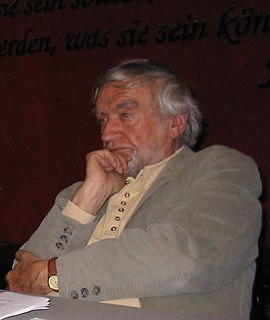 W
WGerhard Zwerenz was a German writer and politician. From 1994 until 1998 he was a member of the Bundestag for the Party of Democratic Socialism (PDS).